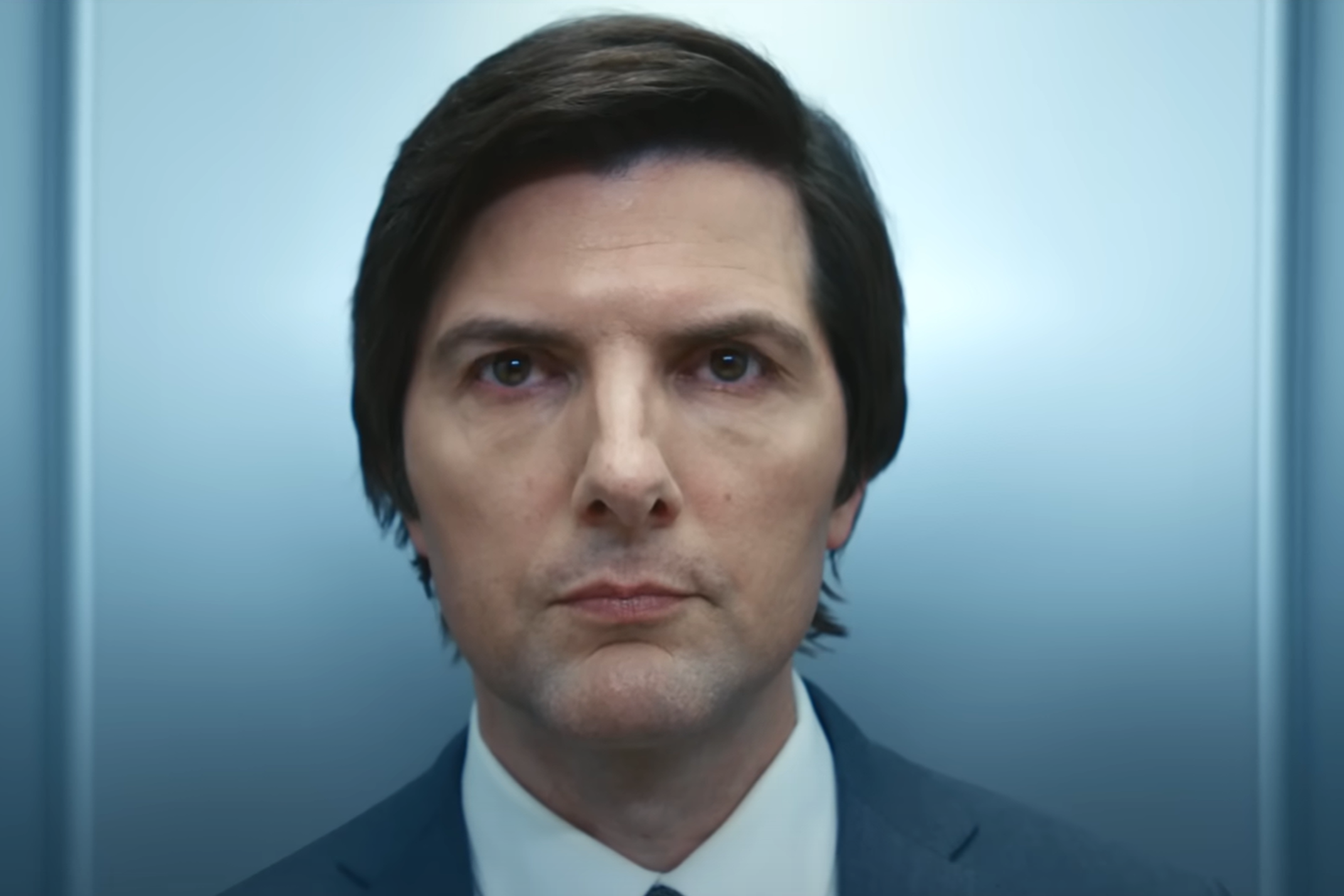“Severance,” the groundbreaking Apple TV+ series, has captivated audiences since its debut, blending psychological intrigue with sharp commentary on contemporary work-life balance. The show centers around a group of employees who willingly undergo a procedure that splits their consciousness, resulting in an “innie” who operates solely within the office and an “outie” living in the outside world, oblivious to the innie’s experiences. With themes delving into identity and free will in movies, “Severance” resonates deeply with viewers seeking both entertainment and reflection on their own dualities. Produced by the talented Nicky Weinstock, the show has sparked conversations about the challenges of modern existence and the profound sense of disconnection many feel. As fans eagerly anticipate “Severance season 3,” the series continues to leave a lasting impression, raising questions about what it truly means to be human in today’s society.
The innovative Apple TV+ series, often described as a surreal exploration of identity, presents a dystopian version of the workplace that sparks vital discussions about our fragmented lives. With its mind-bending premise that divides personal and professional identities, the show challenges viewers to consider the implications of separating their ‘work self’ from their ‘home self.’ This unique narrative not only entertains but also prompts introspection on the concept of self and the nature of autonomy, touching on topics like free will in cinema. Under the guidance of producers like Nicky Weinstock, the series has quickly become a cultural touchstone, reflecting widespread sentiments that are particularly relevant in today’s fragmented work environments. As speculation mounts for the evolving storyline in the much-anticipated “Severance season 3,” audiences are left to ponder the deeper mysteries the show has unveiled.
The Impact of Severance on Work-Life Balance
The concept of ‘Severance’ deeply resonates with the ongoing conversations about work-life balance in today’s society. In a world where many of us feel the pressure to perform, often blurring the lines between professional and personal life, ‘Severance’ presents a thrilling dramatization of this conflict. The show captures how individuals juggle their identities as both office workers and private citizens, often resulting in a dichotomy that feels increasingly familiar. Just as viewers get absorbed in the inner turmoil of its characters, they are prompted to reflect on their own struggles to maintain a harmonious balance between personal joys and workplace obligations.
Nicky Weinstock, the notable co-producer of ‘Severance’, emphasizes this struggle, indicating that the series is more than just a unique concept; it is a mirror reflecting the societal issues of our times. The premise invites audiences to confront their feelings of being split between their roles at work and those at home. By showcasing the characters’ extreme separation of their two lives, the show effectively critiques the modern work culture that often demands sacrifices from individuals, highlighting the necessity for genuine work-life balance.
Exploring Free Will Through ‘Severance’
‘Severance’ delves into the complex theme of free will, a philosophical issue that resonates with audiences as they navigate their own lives. The characters, who are subject to the mind-altering procedure that defines their very existence, embody a heightened exploration of autonomy and choice. This exploration strikes a chord with viewers who wonder whether they truly control their destinies or if external forces dictate their paths. By framing the narrative around such a provocative concept, the show challenges its audience to consider the implications of their own choices in a corporate-driven world.
Nicky Weinstock’s insights amplify this theme, as he connects the show’s narrative to broader questions about identity and agency in contemporary society. With the rise of technology and automation, the story of ‘Severance’ prompts a discussion on how much control we exert over our lives. As Season 2 concludes with cliffhangers that symbolize the characters’ internal struggles, it becomes evident that viewers are left grappling with similar questions of free will and the extent to which they are influenced by their environments. ‘Severance’ ultimately serves as a cinematic exploration of life choices in an increasingly mechanized world.
Nicky Weinstock: A Visionary Behind ‘Severance’
Nicky Weinstock’s journey from Harvard to Hollywood showcases a determination to present groundbreaking stories, and ‘Severance’ stands as a testament to that vision. His experience in anthropology allows him to pull inspiration from diverse cultures and narratives, enriching the content of the series. This breadth of perspective influences the show’s complex dialogue about isolation and duality, challenging the audience to engage with its deeper meanings while remaining entertained. Weinstock’s unique background is not merely an asset but a guiding force in developing narratives that capture the complexities of human existence.
Furthermore, Weinstock’s commitment to originality shines through in how ‘Severance’ breaks traditional storytelling molds. With a bold script that compels viewers to think beyond the ordinary, the production has effectively turned into a cultural phenomenon. He recalls the excitement upon first reading Dan Erickson’s script, recognizing its potential to inspire conversations on identity and work culture. The success of ‘Severance’, under his co-production, emphasizes how innovative storytelling can resonate deeply with audiences, pushing them to confront personal and societal boundaries.
Anticipation for ‘Severance Season 3’
As fans eagerly await ‘Severance Season 3’, the anticipation surrounding the forthcoming narrative is palpable. Speculations about how the storyline will unfold and expand upon the fascinating themes introduced in previous seasons fuel discussions among viewers and critics alike. With the second season concluding on a cliffhanger, audiences are left questioning the consequences of the choices made by pivotal characters and how these decisions might redefine their identities. This suspense not only maintains engagement but also illustrates the show’s commitment to evolving its narrative structure.
Nicky Weinstock hints that Season 3 will diverge significantly from its predecessors, implying that the unfolding story will further delve into the concept of severance and its implications on human existence. This development suggests that the new season could explore uncharted territories within the show’s universe while retaining its core exploration of identity and agency. Fans can expect a creatively ambitious season that continues to challenge perceptions, drawing them deeper into the enigmatic world of ‘Severance’—a commentary that reflects the complexities of modern life.
The Philosophy of Identity in ‘Severance’
‘Severance’ boldly interrogates the nature of identity, positioning itself within a philosophical context that resonates profoundly in today’s world. The duality of characters living separate lives outside and inside the workplace invites viewers to question the authenticity of their personas. As they navigate their roles, audiences are prompted to reflect on the constructs of self they present to others. This exploration of identity speaks to a larger conversation about how societal norms influence individual behavior—how we might feel compelled to show one version of ourselves in professional settings and another in private spheres.
The philosophical undertones of ‘Severance’ challenge audiences to engage with the question of who they truly are when stripped of their societal roles. This engaging narrative structure invites viewers to ponder their own experiences and how they reconcile their identities in a world that often demands performance over authenticity. As the series continues to unfold, it promises to delve deeper into these themes, offering a rich tapestry of philosophical discourse interwoven with thrilling storytelling.
Cultural Reflections in ‘Severance’
In a post-COVID world, ‘Severance’ emerges as a poignant reflection of collective anxieties and social changes. The show’s exploration of confinement during its first season mirrored the pandemic’s impact on society, resonating with viewers who grappled with feelings of uncertainty and disconnection. As people spent prolonged periods isolated from their work and social lives, ‘Severance’ encapsulated this sense of claustrophobia, engaging its audience with an experience that felt vividly relatable and timely.
As Season 2 unfolds, the narrative broadens, exploring larger existential themes that resonate with an audience still grappling with the aftereffects of the pandemic. It delves into questions of trust, agency, and identity amidst chaos, capturing the prevailing societal mood. The cultural significance of ‘Severance’ lies in its willingness to engage with these complex dilemmas, making it not only a popular television series but also a catalyst for dialogue around profound societal issues, thus solidifying its place in modern television history.
Navigating the Unique Narrative Style of ‘Severance’
The storytelling style of ‘Severance’ is as innovative as its premise, employing a blend of surrealism and dark humor to engage viewers. The show’s ability to balance moments of tension with light-hearted banter allows it to tackle heavy themes without becoming oppressive. This narrative technique is crucial in capturing the audience’s attention while encouraging deeper reflection on the underlying messages about life, work, and identity. The uniqueness of the narrative not only sets it apart from other work-life balance TV shows but also enhances its accessibility to a wider audience.
Nicky Weinstock’s commitment to refining this narrative style undoubtedly contributes to the show’s appeal. His efforts to retain the original vision while honing the script has ensured that ‘Severance’ remains both entertaining and intellectually stimulating. The show’s ability to maintain a tone that invites both laughter and contemplation may become a defining characteristic of its identity, ensuring that viewers remain captivated while they grapple with the more profound questions the series raises about the human condition.
Fan Theories and Discussions Around ‘Severance’
The community of ‘Severance’ fans thrives on speculation and theory-building, transforming the viewing experience into an interactive dialogue between creators and audiences. Each episode spurs discussions on forums and social media platforms, where fans dissect plot twists and character motivations. This engagement not only nurtures a loyal fanbase but also cultivates a deeper connection with the narrative, reflecting a modern trend where storytelling expands beyond the screen and into conversations among viewers. For many, predicting the next moves of their favorite characters becomes as thrilling as the episodes themselves.
The dynamic nature of these discussions highlights how ‘Severance’ resonates with its audience on a personal level. The themes of identity and work-life balance weave into the fabric of viewers’ daily existences, creating a relatable connection that fuels speculation. Fans often find themselves reflecting on their own lives while theorizing about the show, making ‘Severance’ not just a series to watch but a shared cultural experience that invites introspection and dialogue about the complexities of modern life.
The Future of Streaming and Innovative Programming
As ‘Severance’ continues to carve out its place in the streaming landscape, its success underscores the importance of innovative programming in the evolving television industry. With viewers seeking fresh narratives that challenge traditional storytelling norms, shows like ‘Severance’ highlight the potential for streaming platforms like Apple TV+ to lead the charge in quality content. The intersection of thought-provoking themes and creative storytelling demonstrates that audiences are not just looking for entertainment; they crave depth and originality in their viewing choices.
With the promising direction of Season 3, ‘Severance’ may set a precedent for future programming, encouraging other creators to explore unconventional narratives that resonate with contemporary societal issues. As audiences become more discerning, the push for originality and meaningful content in the streaming arena will likely grow. Nicky Weinstock’s role in this movement illustrates how innovative minds can drive the industry toward a future that values creativity and thoughtfulness, paving the way for a new era of television.
Frequently Asked Questions
What is the main premise of the Apple TV+ show “Severance”?
“Severance” is a unique Apple TV+ series that explores the lives of office workers who have undergone a procedure to separate their memories into two distinct selves—an ‘innie’ for work and an ‘outie’ for life outside the office. This striking concept raises questions about work-life balance, identity, and the nature of free will.
How does “Severance” address themes of free will in movies?
In “Severance,” the theme of free will is intricately woven into the narrative as characters grapple with the implications of living divided lives. The show challenges viewers to consider what it means to have autonomy in a world where personal and professional identities are sharply delineated, reflecting broader societal questions about control and choice.
When is “Severance Season 3” expected to release?
While specific release dates for “Severance Season 3” have not been confirmed, the expectation is that it will follow the cliffhanger ending of Season 2, expanding on the show’s exploration of identity and the implications of its central concept.
Why is “Severance” considered a significant show about work-life balance?
“Severance” stands out as a cultural commentary on work-life balance by vividly portraying the struggles of individuals attempting to separate their professional personas from their personal lives. The show’s narrative dives into the psychological effects of a divided existence, resonating with audiences seeking to reconcile their own work-life challenges.
Who is Nicky Weinstock in relation to “Severance”?
Nicky Weinstock is a co-producer of “Severance” and a Harvard alum, who played a key role in bringing the show’s innovative concept to life. His involvement highlights a journey from academia to Hollywood, contributing to the show’s unique storytelling and production.
What makes “Severance” different from other workplace shows?
Unlike traditional workplace comedies, “Severance” employs a bizarre and thought-provoking premise that separates consciousness, raising existential questions about identity and personal agency. This adds layers of complexity and intrigue, making it a standout in the genre of work-life balance TV shows.
How did the COVID-19 pandemic influence the themes in “Severance”?
The pandemic heightened themes of isolation and disconnection present in “Severance.” Season 1’s claustrophobic atmosphere reflected the social challenges many faced during the pandemic, while Season 2 expanded on these themes, exploring deeper questions about humanity and societal structures in an increasingly unpredictable world.
| Key Point | Details |
|---|---|
| Concept of ‘Severance’ | The show depicts a procedure separating consciousness into an ‘innie’ at work and an ‘outie’ outside work. |
| Themes | Explores work-life balance, identity, free will, and internal conflict. |
| Production Background | Produced by Nicky Weinstock, who initially encountered the script through Dan Erickson without prior producing experience. |
| Audience Connection | Resonates with viewers, reflecting their feelings of duality in personal and professional lives. |
| Season 2 Reflection | Season 1 represented isolation during COVID, while Season 2 broadened the narrative to human experiences. |
| Future Directions | Season 3 is anticipated to be dramatically different and explore new dimensions of the severance concept. |
Summary
Severance has captivated audiences with its unique exploration of the human experience, delving into themes of identity and duality in our lives. The Apple TV+ show not only resonates with viewers but also raises critical questions about our existence in a world filled with uncertainty. As it moves forward with new seasons, Severance promises to take these compelling narratives into fresh and unexpected territories.



